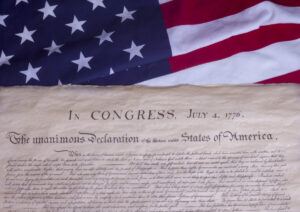Transitioning to an Honest Money System
As we contemplate the transition towards an honest money system, it becomes evident that the steps outlined are designed to ensure a seamless shift without causing disruption to legitimate business operations or inflicting losses upon innocent individuals.
The proposed measures include a strategic pay-off plan for Federal Reserve Banks and member banks, emphasizing fairness and aligning with principles rooted in Christian philosophy.
This transition aims to uphold social justice by restoring to individuals only what they rightfully contributed, eliminating the burden of paying for services not delivered.
Moreover, a transparent and publicized approach is suggested, emphasizing pitiless publicity to safeguard citizens against both excess and scarcity of money.
This transition sets the stage for a monetary system guided by honesty, accountability, and a commitment to economic well-being.
Discover “End the Fed” by Ron Paul, a compelling critique of the Federal Reserve. Explore Paul’s arguments for abolishing the Fed to restore economic freedom and stability.
Could a Shift to Honest Money Avoid Business Disruption?
Certainly. The transition wouldn’t significantly impact everyday money users, aside from the noticeable upturn in business recovery.
Steps to Settle Federal Reserve Bank Debts
(a) The Federal Reserve Banks’ capital and surplus would be purchased using United States legal tender. Funds received by these banks, owned by member banks, would be directly channeled to cancel their capital stock.
(b) Member banks’ total reserves, including percentages against deposits, would be paid off using United States legal tender on a dollar-for-dollar basis.
(c) Outstanding Federal Reserve Notes per bank would be rapidly exchanged for United States legal tender. These notes, constituting circulation, would be promptly replaced.
(d) United States Treasury-held bonds tied to Federal Reserve Notes would become government property, promptly nullified.
(e) All Federal Reserve Bank assets, including buildings and equipment, would become government possessions. Buildings could be repurposed for Congressional Money Board investigations but not involved in interbank clearances like the current Federal Reserve Banks.

Is this Repudiation?
No, it isn’t. Federal Reserve Banks acquired assets using newly created money, hence settling these debts with nothing is a fair alignment.
Individual or corporate notes matured under this setup would be repaid by the issuer using United States legal tender.
Fate of Unpledged Government Bonds with the Federal Reserve Banks
Unpledged Government bonds held by the Federal Reserve Banks would become the property of the United States Government and should be invalidated.
Alignment with Christian Philosophy in Settling Federal Reserve Banks
Yes, these steps resonate with Christian teachings, akin to Christ’s act of disrupting the “money changers.”
Christian social justice advocates restoring to these entities only what they fairly contributed.
Citizens shouldn’t be compelled to pay for undelivered goods or services.
The Federal Reserve Banks merely kept records; therefore, paying billions for just bookkeeping entries, exchanged for Government bonds – essentially everyone’s collateral – isn’t justifiable.

Impact of an Honest Pay-Off
It wouldn’t trouble anyone except those benefiting unfairly.
Those gaining undeservedly should rightfully receive nothing in return.
Should these beneficiaries protest, Andrew Jackson’s words, rejecting the continuation of a similar racket in his era, resonate: “Your suffering is your fault; allowing it to continue would be mine.”
Steps in Paying Off Member and Local Banks
(a) The Congressional Board of Money would arrange payment to local banks, ensuring 100% coverage of their total demand deposits on a designated date.
The notes, bonds, and collateral held by banks against these deposits would be transferred entirely to an agent of the Congressional Board.
As the notes mature and the banks receive payments, they would remit United States currency to the Congressional Board, reclaiming the notes and collateral for their customers.
(b) Upon receiving this money, it would be disbursed for government services or used for redeeming government bonds, especially if the overall money quantity is insufficient to stabilize the desired price levels.
(c) When citizens’ government bonds mature, an increased money volume would be facilitated by exchanging them for new United States currency.
This issuance for bond redemption would occur only when more money is necessary to ensure or sustain fair price levels.
(d) As Federal Reserve Notes or other currency held by the public are brought to banks, they’d exchange them for United States legal tender, one-to-one.
A reasonable time frame would be set for this exchange to avoid unnecessary delays.
Discover “Wealth, Virtual Wealth and Debt” by Frederick Soddy, a groundbreaking analysis of economic systems. Uncover how wealth, debt, and virtual wealth shape our world.


